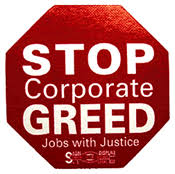
Commentary by Ann Woolner, Bloomberg - Business Week
Jan. 15 (Bloomberg) -- Those who years ago bought Tribune Co. bonds now are hurling nasty claims at the so-deserving Sam Zell, the real estate magnate whose takeover loaded the storied newspaper company with so much debt that it fell into bankruptcy.
Longtime bondholders accuse Zell of borrowing more than the company was worth to make the deal, thus jeopardizing their stakes in what had been until then a solvent company.
The resulting leveraged buyout “was a virtually no-money- down LBO,” as bondholder attorney David Rosner said in court last month.
We know from the mortgage meltdown the danger of no-money- down loans.
So now Tribune bondholders are pitted against the banks and hedge funds that enabled the doomed deal by loaning the money. The question is who gets what ownership interest in the company when it comes out of bankruptcy.
As with the multitude of Ponzi schemes hidden during good times and exposed by the recession, so it is with leveraged buyouts. When the market and the economy were bubbling up, no price seemed reckless.
Now it falls to bankruptcy judges to sort out the rubble. Tribune Co. isn’t the only bankruptcy case prompting accusations of so-called fraudulent transfer. That is bankruptcy slang used when an insolvent company gives away more than it gets in return, or when that sort of fiscal carelessness drives the company into insolvency.
Leveraged Takeovers
At least three other companies went through heavily leveraged takeovers that seemed to have helped land them in bankruptcy court and left previously confident creditors fighting with newcomer lenders. Bondholders aren’t the least bit happy.
A Florida bankruptcy judge in October declared homebuilder Tousa Inc. fraudulently transferred assets when it bailed out an affiliate six months before filing for reorganization. The creditors’ committee has sued Tousa’s directors over it.
In Nevada, creditors for casino operator Station Casinos Inc. are asking a judge to let it sue directors, alleging the company’s 2007 leveraged buyout left it with $1.7 billion in new debt that catapulted the casino operator into bankruptcy.
Likewise, creditors are suing in Manhattan over the 2007 leveraged buyout of Houston-based Lyondell Chemical Co., claiming that was partly a fraudulent transfer, too.
Debt-Ridden Unit
When entrepreneur Leonid Blavatnik used a debt-ridden unit of his Access Industries Holdings LLC to buy the chemical producer, “Every dollar of the $22 billion used to acquire Lyondell was borrowed money,” the creditors committee said in court papers.
Within a year, the merged company was in bankruptcy court. Lyondell’s creditors are suing the major banks and hedge funds that put the deal together.
Of all those deals gone bad, the one that grabs my gut is that of the Tribune Co. I’m a journalist with a deep need and soft heart for newspapers. I fret daily about what will become of them and the rest of us if they fail.
Newspapers were in sufficient trouble without Zell coming along and pulling down some of the country’s best-known papers, the Los Angeles Times, the Chicago Tribune and the Baltimore Sun, all owned by Tribune.
Now the company, which also owns a score of broadcast outlets, might actually make money if it could ever get out of bankruptcy court and settle its debts.
Rightful Demand
What is holding up reorganization is the bondholders’ rightful demand for an independent investigation of the buyout. They have asked the bankruptcy judge to appoint an examiner to look into their claims of fraudulent transfer.
If the bondholders prove the LBO was a fraudulent transfer of assets, board members could be held liable for approving it. The banks that made the defective loans could lose their security interests and their claims against the operating companies, which amount to billions of dollars.
They can’t blame Tribune’s problems on the sudden crash of the economy. That the deal was doomed from the start wasn’t only entirely predictable, it was widely predicted.
Zell, who once called himself a “grave dancer” for happily jumping into companies others found moribund, told the Associated Press in 2007 that he was obviously more optimistic about newspapers than others. At the time he was putting together the Tribune deal as revenue was dropping.
‘Human Wrecking Ball’
Since then, he has been called a “human wrecking ball” for the toll his cost-cutting wreaked on his debt-laden newspapers. So said a Los Angeles-based columnist in a Washington Post op-ed piece.
Asked this week on CNBC when his company will come out of bankruptcy, Zell called it “reasonable to assume that it will come out probably in the first half of this year.” It could happen within the first quarter if negotiations with creditors “go easier.”
At the moment, they aren’t going easy. If his enablers in the merger would acknowledge the debt they owe to the bondholders who preceded them, then things might go a little smoother.
Click on “Send Comment” in sidebar display to send a letter to the editor.
--With assistance from Bill Rochelle in New York. Editors: Jim Rubin, Steven Gittelson.
To contact the writer of this column: Ann Woolner in Atlanta at +1-404-507-1314 or
awoolner@bloomberg.net.
To contact the editor responsible for this column: James Greiff at +1-212-617-5801 or jgreiff@bloomberg.net.

















 Commentary by Ann Woolner, Bloomberg - Business Week
Commentary by Ann Woolner, Bloomberg - Business Week